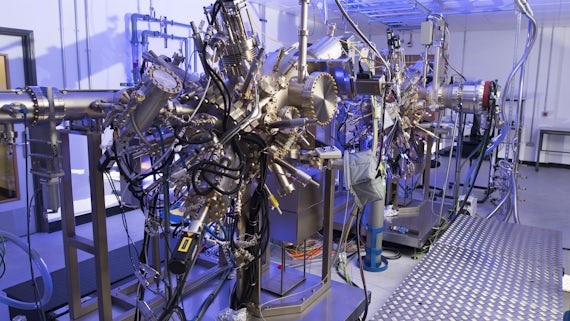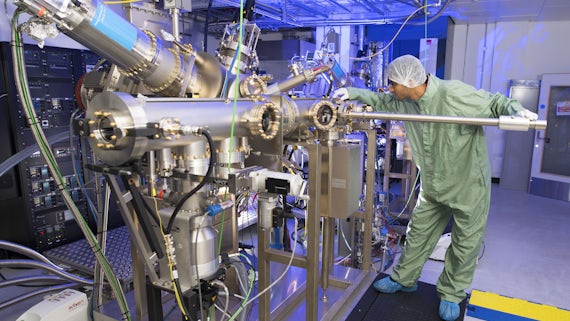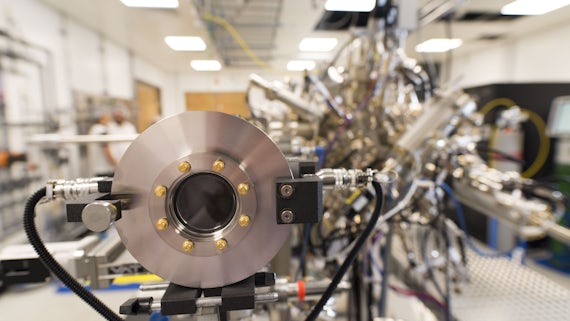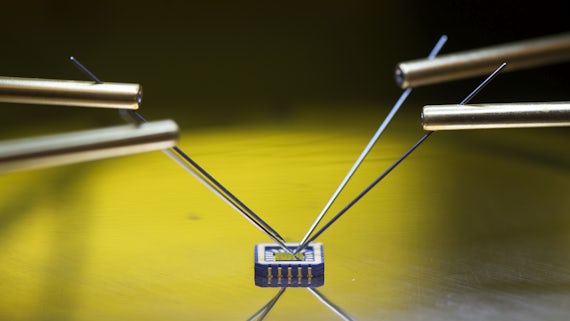Institute for Compound Semiconductors gathers pace
6 September 2017
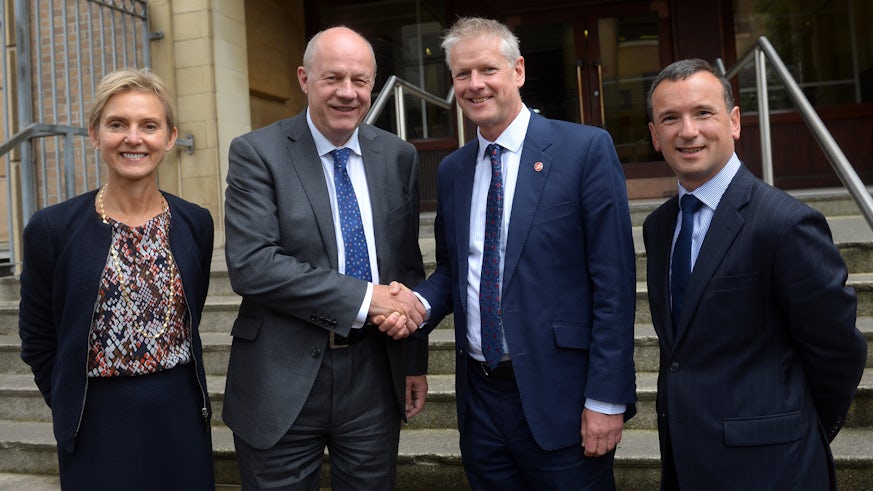
The First Secretary of State and Minister for the Cabinet Office, the Rt. Hon Damian Green MP, and the Secretary of State for Wales, the Rt. Hon Alun Cairns MP, have visited Cardiff University’s Institute for Compound Semiconductors.
Visiting the Institute’s new molecular beam epitaxy reactors, the Cabinet ministers heard how the new facilities will aid the development of a compound semiconductor cluster in Wales.
Performing up to 100 times faster than silicon, compound semiconductors will unlock this century’s major tech developments. The Institute will support these advances by turning its compound semiconductor research breakthroughs into new products.
Its director, Professor Diana Huffaker, and her Sêr Cymru research team will use the reactors to explore novel ways of growing high-purity compound semiconductor crystals.
Operating under ultra-high vacuum conditions, the reactors allow researchers to grow complex multi-layer crystal structures one atomic layer at a time. One particular structure, known as a nanopillar, can be designed to enhance the performance of light detectors and emitters, such as infrared detectors, lasers and LEDs.
The epitaxy machines are the starting point for research and development with industry. They will produce the materials needed for the new devices that will be explored in the Institute’s cleanroom.
Providing the regional cluster with cutting-edge fabrication and characterisation capabilities, the cleanroom will process the high-quality wafers needed to prototype the products of the future. It will also conduct commercially-relevant research and open its doors to industrial users for direct collaboration and services.
Professor Huffaker said: “The reactors allow us to work from the atomic level up, trialling the new materials and structures that can revolutionise the tech industry...
"When you combine these new facilities, you get a sense of the path the Institute is charting: we will take research breakthroughs from the reactor and use them in the industrial cleanroom, moving knowledge from the laboratory to society."
Professor Colin Riordan, Vice-Chancellor of Cardiff University, added: “Cardiff University is grateful for the support from UK and Welsh Government as we partner with industry to help create the world's first compound semiconductor cluster here in Wales. We need these large-scale, innovative projects to drive economic growth, and they are best achieved by this kind of close co-operation between academia, business and government.”
The equipment and facilities have been supported through Welsh Government’s Sêr Cymru initiative and the European Regional Development Fund.
UK Government and Welsh Government have provided £17.3m and £12m respectively for further investment, including the Institute’s move onto the University’s £300m Innovation Campus.
Share this story
The institute provides cutting-edge facilities to help researchers and industry work together.
